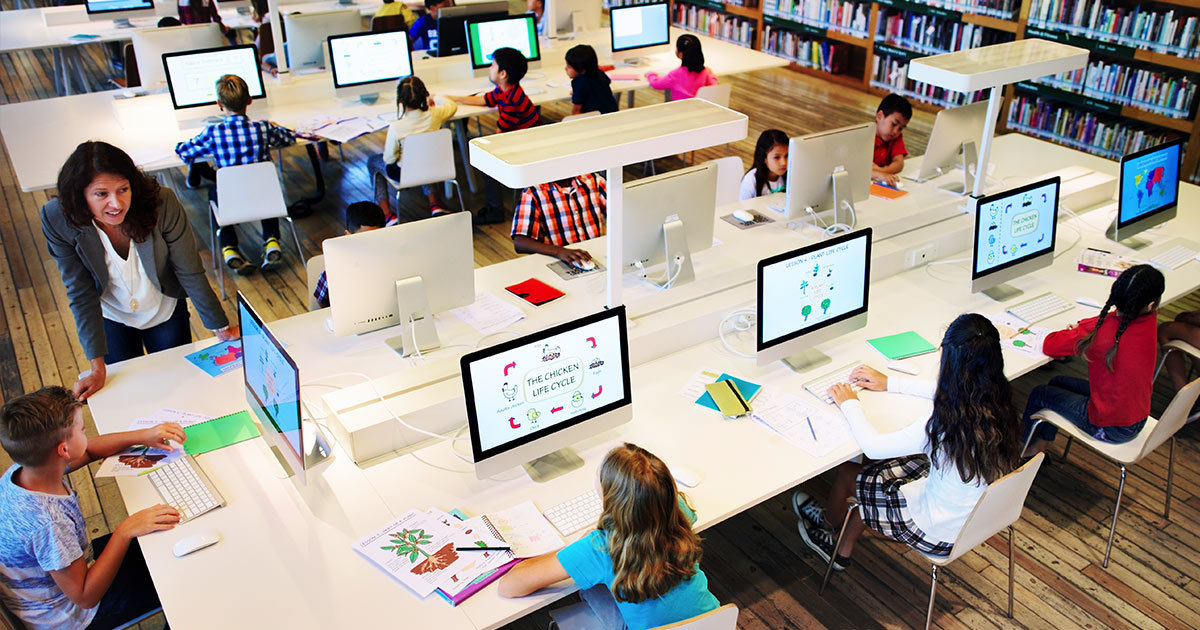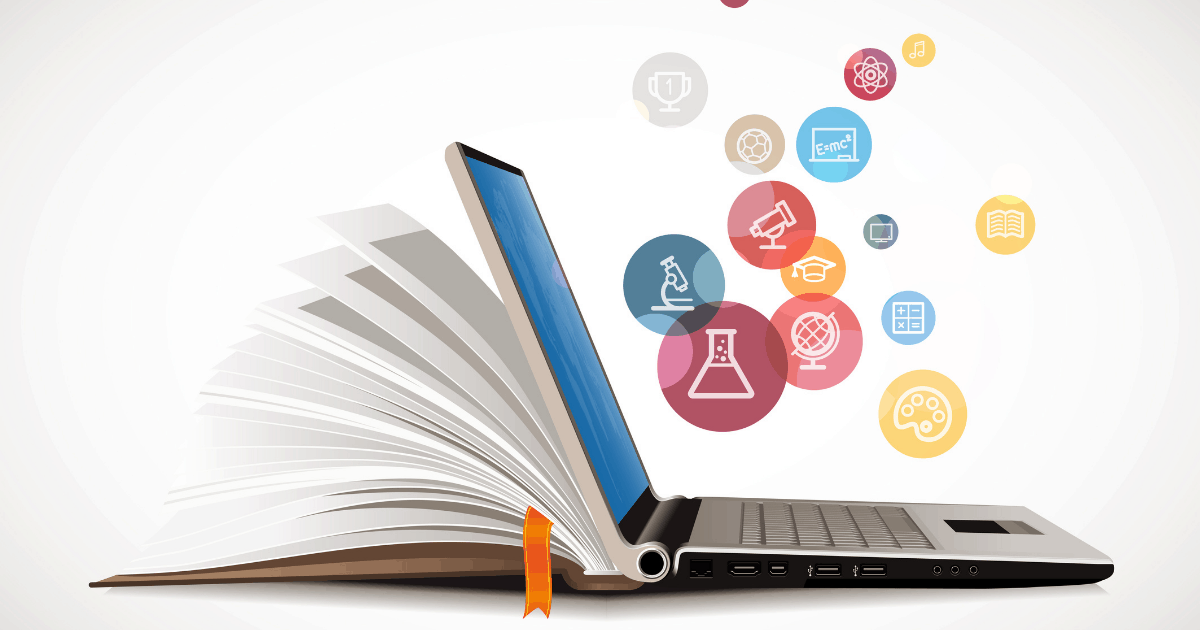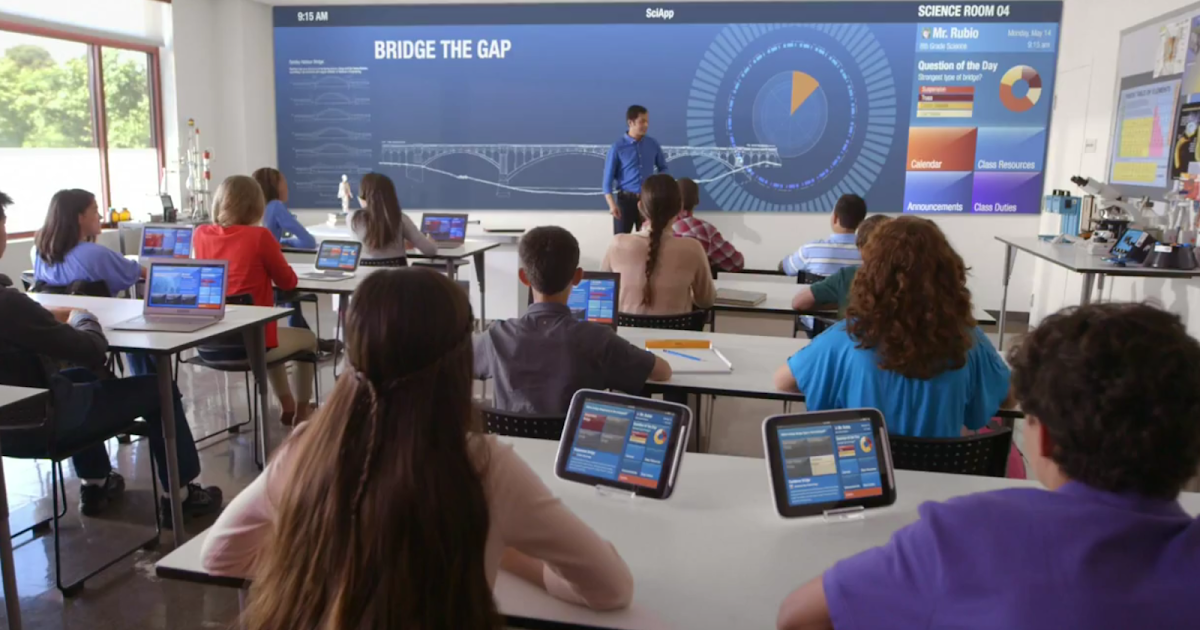EdTech Updates: Stay Informed on Educational Technology
Embracing the EdTech Evolution
In the dynamic landscape of education, the transformation spurred by Educational Technology (EdTech) is not just a trend; it’s an evolution that educators must wholeheartedly embrace. The conventional classroom is undergoing a metamorphosis, and at its core is the integration of technology that goes beyond being a mere supplement; it’s becoming a fundamental part of the educational DNA.
Setting the Stage for EdTech Transformation
EdTech is not merely a tool but a catalyst reshaping the very foundations of education. It amplifies traditional teaching methods, fostering an environment where technology is seamlessly integrated into every aspect of learning. The stage is set for a holistic transformation, where educators become orchestrators of an interactive and dynamic symphony of knowledge.
The Growing Impact of Technology in Education
The impact of technology in education is akin to a ripple effect, touching every corner of the academic realm. From revolutionizing classroom dynamics to redefining how students engage with information, technology is a force shaping the minds of the future. As we witness this transformative impact, it becomes imperative for educators to not just adapt but actively participate in molding the future of education.
EdTech Landscape Overview

Navigating the EdTech landscape requires an understanding of its key players and the trends that are steering the industry forward.
Key Players in the Industry
Prominent companies and organizations are spearheading the EdTech revolution, offering innovative solutions that cater to diverse educational needs. From established giants like Google and Microsoft to agile startups pushing the boundaries of what’s possible, the field is a vibrant ecosystem of creativity. Collaborations and partnerships between educators and these key players are essential for fostering an environment of continuous innovation.
Trends Shaping EdTech Today
Keeping abreast of the latest trends is crucial for educators. From artificial intelligence to immersive experiences, EdTech trends are not just fleeting moments; they are the signposts directing the future of education. The rise of adaptive learning, the integration of AR and VR, and the exploration of blockchain applications are not just buzzwords but indicators of an educational landscape undergoing a profound metamorphosis.
The Digital Learning Toolbox
In the era of digital education, educators need a comprehensive toolbox to navigate the diverse landscape of learning platforms.
Interactive Learning Platforms
Interactive platforms transform passive learners into active participants, fostering engagement through quizzes, discussions, and real-time feedback loops. Platforms like Kahoot! and Nearpod are not just tools; they are gateways to a dynamic learning experience where students become co-creators of knowledge.
Virtual Classrooms and Webinars
Breaking down geographical barriers, virtual classrooms and webinars provide a global stage for learning, where students and educators can interact regardless of physical distance. Zoom, Microsoft Teams, and other virtual communication tools are bridges connecting learners worldwide, expanding the horizons of education beyond the confines of a traditional classroom.
Adaptive Learning Systems
Tailoring education to individual learning styles, adaptive systems use data-driven insights to create personalized learning paths, ensuring no student is left behind. Platforms like DreamBox and Knewton are not just algorithms; they are companions on a student’s educational journey, adapting to their strengths and weaknesses in real-time.
Emerging Technologies in Education

As education evolves, so do the technologies driving it forward. Exploring these emerging technologies is essential for staying at the forefront of educational innovation.
Artificial Intelligence in Education
AI is not just a buzzword; it’s a transformative force in education, offering personalized learning experiences, intelligent tutoring systems, and data-driven insights to optimize educational outcomes. AI-powered platforms like Squirrel AI and Carnegie Learning are not just tools; they are mentors, providing tailored support to each student’s unique learning path.
Augmented and Virtual Reality Applications
Bringing a touch of the extraordinary to the ordinary, AR and VR applications transcend the limitations of traditional teaching methods, offering immersive experiences that resonate with the digital-native generation. Apps like Google Expeditions and ClassVR are not just gadgets; they are windows opening to virtual worlds, enriching the educational experience with a visual and interactive layer.
Blockchain in Education
Blockchain ensures the integrity of educational records, creating a secure and transparent system for verifying credentials, thus revolutionizing the way we authenticate educational achievements. Blockchain applications like Learning Machine and Sony Global Education are not just cryptographic protocols; they are guardians of academic integrity, providing a tamper-proof record of educational achievements.
Navigating the EdTech Jungle: A Guide for Educators
As educators dive into the EdTech jungle, it’s imperative to have a guide that helps them navigate the complexities and harness the potential of technology for the benefit of students.
Choosing the Right Learning Management System (LMS)
Selecting an LMS is a pivotal decision for educators, and understanding the options available is the first step toward creating an enriched learning experience.
Comparing Popular LMS Options
From Canvas to Moodle, each LMS has its strengths. A comparative analysis aids educators in choosing the platform that aligns with their teaching goals. Canvas, with its intuitive interface, fosters collaboration, while Moodle’s open-source nature provides flexibility for customization, demonstrating that the choice of an LMS is not one-size-fits-all but a tailored decision based on unique educational needs.
Features to Look for in an LMS
User-friendly interfaces, robust analytics, and scalability are just a few features educators should consider when evaluating potential LMS options. A user-friendly interface ensures that educators and students can navigate the platform effortlessly, analytics empower educators with insights to refine teaching strategies, and scalability ensures that the LMS can grow alongside the institution’s evolving needs.
Integrating Technology in the Classroom
Technology integration is an art that requires finesse. Educators must seamlessly weave tech tools into their teaching methodologies to enhance rather than distract.
Best Practices for Seamless Integration
From planning interactive lessons to troubleshooting technical glitches, adopting best practices ensures a smooth integration process that augments the learning experience. Incorporating technology seamlessly involves pre-planning, collaboration with tech support, and continuous reflection to refine the integration process, creating a harmonious blend of traditional teaching methods and technological enhancements.
Overcoming Common Challenges
From resistance to technological hiccups, educators must be equipped to address common challenges associated with integrating technology into the classroom. Resistance is not a roadblock but an opportunity for dialogue, and technical challenges are not barriers but stepping stones toward a more tech-savvy educational environment.
Addressing Accessibility and Inclusivity
In the pursuit of an inclusive learning environment, addressing accessibility is paramount, ensuring that every student, regardless of ability, can participate fully.
Ensuring EdTech Accessibility for All Students
From captioned videos to screen reader compatibility, ensuring that EdTech tools are accessible to students with diverse needs is a non-negotiable aspect of modern education. Accessibility is not an afterthought but an integral part of technology design, ensuring that every student, regardless of physical or cognitive abilities, has equal access to educational resources.
Strategies for Inclusive Learning Environments
Creating an inclusive classroom extends beyond technology. Strategies such as diverse content representation and flexible assessment methods contribute to an environment where every student feels valued. Inclusivity is not just a checkbox; it’s a mindset that permeates every aspect of education, creating an environment where diversity is not just accepted but celebrated.
The Rise of Online Learning

Online learning has transcended being a mere alternative; it’s now a powerful and flexible mode of education. Understanding its nuances is essential for educators navigating this evolving landscape.
Exploring the World of Online Courses
Online courses offer a plethora of benefits, from flexibility to a global reach, revolutionizing the way education is consumed.
Benefits of Online Learning
Flexibility in scheduling, access to diverse courses, and the ability to learn at one’s pace are just a few of the advantages that make online learning an appealing option. Online learning is not just a convenience; it’s a paradigm shift that democratizes education, providing access to knowledge irrespective of geographical constraints.
Popular Online Learning Platforms
Platforms like Coursera, edX, and Khan Academy have become synonymous with online learning, offering a diverse array of courses from renowned institutions. Online learning platforms are not just repositories of lectures; they are gateways to a global classroom where students from different corners of the world converge to learn and collaborate.
Microlearning: A Macro Impact
In a world inundated with information, the concept of microlearning has emerged as a powerful strategy to deliver bite-sized, impactful content.
Understanding Microlearning
Breaking down complex topics into digestible modules, microlearning promotes retention and engagement, catering to the modern learner’s preference for concise, focused content. Microlearning is not just a trend; it’s a recognition of the limited attention spans in the digital age, providing a solution that aligns with how our brains naturally process information.
Implementing Microlearning Strategies
From interactive quizzes to short video tutorials, educators can leverage microlearning strategies to enhance understanding and cater to varied learning styles. Implementation is not just about adopting new tools; it’s about reimagining content delivery, making it more digestible and engaging for students who live in a world of constant information bombardment.
Massive Open Online Courses (MOOCs)
MOOCs have democratized education, offering free or affordable courses from top-tier institutions. Understanding their role is crucial for educators embracing the digital era.
MOOCs in Higher Education
Universities worldwide are embracing MOOCs as supplemental resources, enhancing the traditional classroom experience with global perspectives and diverse learning materials. MOOCs are not just alternatives to traditional education; they are supplements that enrich the academic journey, providing a bridge between institutional learning and the vast sea of global knowledge.
Expanding Access to Quality Education
MOOCs break down financial barriers, providing access to quality education for individuals who might otherwise be unable to afford traditional academic pathways. The expansion of access is not just a side effect but a core principle driving the philosophy of MOOCs, making education a universal right rather than a privilege.
EdTech and Student Engagement
In the digital age, engaging students is not just a challenge; it’s a necessity. EdTech offers an array of tools to captivate the modern learner’s attention.
Gamification in Education

Gamifying the learning experience turns education into an adventure, making complex subjects more accessible and promoting active participation.
Gamified Learning Experiences
From educational games to interactive simulations, gamified learning experiences create an immersive environment where students actively seek knowledge. Gamification is not just about adding points and badges; it’s about creating a narrative where learning becomes a quest, and students are the protagonists.
Boosting Student Engagement through Games
Incorporating elements of competition and rewards, educational games motivate students to participate actively in their learning journey. Engagement is not just a byproduct; it’s a goal, and games are not distractions; they are tools that make learning memorable and enjoyable.
Personalized Learning Paths
Recognizing that every student is unique, EdTech facilitates personalized learning paths tailored to individual strengths, weaknesses, and learning preferences.
Tailoring Education to Individual Needs
Adaptive learning technologies adjust content and pacing to cater to each student’s individual needs, ensuring a personalized learning journey for all. Personalization is not just a feature; it’s a commitment to recognizing and nurturing the unique potential within each student, fostering an educational experience that resonates with their individuality.
Tools for Creating Personalized Learning Experiences
From AI-driven adaptive platforms to interactive content creation tools, educators have an array of resources to craft personalized learning experiences that resonate with students. Tools are not just instruments; they are brushes in the hands of educators, painting a canvas where each stroke contributes to the masterpiece of a student’s educational journey.
The Power of Multimedia
In an era dominated by visual stimuli, leveraging multimedia enhances the educational experience, making learning more engaging and effective.
Incorporating Videos and Interactive Content
Video lectures, animations, and interactive simulations bring subjects to life, offering a multi-sensory learning experience that caters to diverse learning styles. Multimedia is not just decoration; it’s a language that transcends barriers, providing a richer educational experience where students can see, hear, and interact with the content.
Enhancing Learning with Multimedia Elements
From podcasts to virtual field trips, incorporating multimedia elements enriches the educational journey, making it more dynamic and memorable. Enhancement is not just a bonus; it’s a strategic choice to create a learning environment that mirrors the diversity of stimuli students encounter in their daily lives.
Keeping Up with EdTech Trends

EdTech is a rapidly evolving field, and staying informed about the latest trends is essential for educators seeking to provide cutting-edge education.
Staying Updated on the Latest Innovations
In a fast-paced world, staying updated is not just an option; it’s a necessity. Following industry publications and blogs is a reliable way to stay informed.
Following Industry Publications and Blogs
Platforms like EdSurge, eSchool News, and The Journal are invaluable resources, offering insights, reviews, and discussions on the latest EdTech trends. Following is not just a passive act; it’s an active engagement with the ever-evolving landscape of educational technology, ensuring educators remain at the forefront of innovation.
Attending EdTech Conferences and Events
Conferences like ISTE and BETT provide educators with a firsthand look at emerging technologies, best practices, and networking opportunities with like-minded professionals. Attending is not just a checkbox on an annual calendar; it’s an investment in professional growth, a chance to witness firsthand the pulse of the EdTech industry.
Harnessing the Power of Professional Development
EdTech training is not a one-time event; it’s an ongoing process that empowers educators to harness the full potential of technological advancements.
EdTech Training for Educators
Workshops, webinars, and certification programs equip educators with the skills needed to navigate the digital landscape confidently. Training is not just about acquiring technical proficiency; it’s about cultivating a mindset that sees technology as an ally, not a challenge.
Building a Supportive EdTech Community
A community of educators, administrators, and tech specialists fosters collaboration and shared insights, creating a supportive environment where everyone benefits from collective knowledge. Building a community is not just about networking; it’s about creating a support system where challenges are shared, and triumphs are celebrated, ensuring that the journey into EdTech is not a solitary one.
Overcoming Challenges in EdTech Implementation
The road to successful EdTech implementation is not without obstacles. Understanding and addressing these challenges is vital for a smooth integration process.
Infrastructure and Connectivity Issues
Even in a digitally connected world, issues such as poor infrastructure and connectivity disparities pose challenges that educators must overcome.
Strategies for Overcoming Tech Barriers
From investing in robust infrastructure to exploring offline options, educators can implement strategies to mitigate the impact of connectivity challenges.
Addressing the Digital Divide in Education
Ensuring equitable access to technology is paramount. Initiatives like community Wi-Fi, subsidized devices, and digital literacy programs address the digital divide, fostering equal opportunities for all.
Data Security and Privacy Concerns
With the influx of technology comes the responsibility to safeguard sensitive student data. Prioritizing data security and privacy is non-negotiable.
Ensuring Student Data Privacy
Implementing encryption, secure servers, and strict access controls are measures educators must take to guarantee the confidentiality and integrity of student data.
Best Practices for EdTech Security
Educators need to be well-versed in best practices, from regularly updating software to educating students on digital safety, ensuring a secure EdTech environment.
Resistance to Change
The human element is a significant factor in EdTech implementation. Educators and stakeholders may resist change, posing a challenge that requires a delicate approach.
Navigating Resistance from Educators
Acknowledging concerns, providing training, and highlighting the benefits of EdTech can alleviate resistance, fostering a positive attitude toward technology integration.
Building a Culture of Innovation in Education
Creating a culture where innovation is celebrated and embraced empowers educators to experiment with new technologies, fostering an environment where everyone is a lifelong learner.
The Future of EdTech
As educators navigate the present, glimpsing into the future of EdTech provides insights that shape strategic planning and curriculum development.
What to Expect in the Future
From immersive learning experiences powered by AI to advancements in virtual reality, the future promises an exciting array of possibilities that will redefine the educational landscape.
Empowering Education through Continuous Technological Advancements
EdTech is not a destination but a journey. Continuous advancements in technology will empower educators to refine and enhance the learning experience, ensuring that students are well-prepared for the challenges and opportunities of the future.




Os comentários estão encerrado.